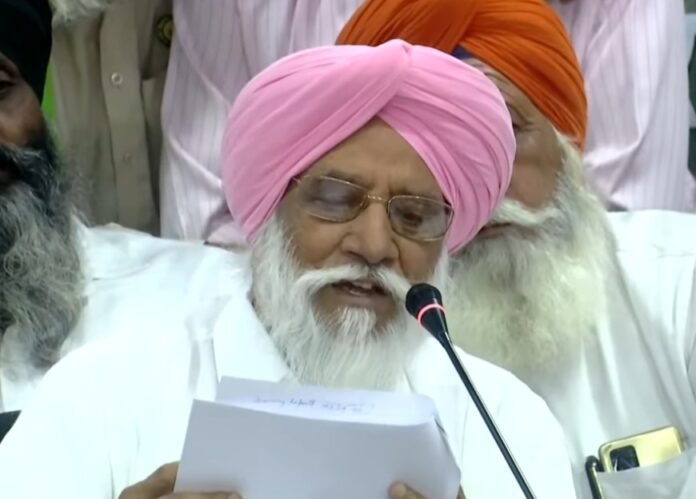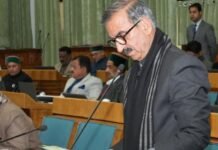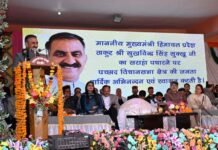The Sanyukt Kisan Morcha (SKM), the coalition at the forefront of India’s contemporary farmer movement, has reignited the spotlight on agrarian issues with a decisive press conference in Chandigarh. The meeting, which took place on July 18, 2025, focused on pressing concerns that continue to shape the socio-political landscape in Punjab and the broader Indian agriculture sector.
Farmers’ Rising Demands: Spotlight on MSP and Debt Relief
At the heart of the SKM’s renewed call to action is the demand for a legal guarantee of Minimum Support Price (MSP) for crops. This persistent plea, now echoing for several years, is grounded in the need for economic security amid volatile market conditions. The SKM also pressed for the withdrawal of legal cases against farmers who participated in previous protests, along with adequate compensation to families who lost members during those agitations.
Other critical demands outlined by the SKM leadership include:
- Comprehensive Debt Waiver: The coalition seeks a full cancellation of all farmer and farm laborer debts, arguing that piecemeal waivers have failed to resolve enduring agrarian distress.
- Restoration of the Land Acquisition Act: Farmers want an immediate reinstatement of the stronger safeguards that previously existed in land acquisition norms.
- India’s Withdrawal from the World Trade Organization (WTO): The rationale here is that current WTO agricultural agreements undermine small Indian farmers, particularly those in Punjab, by restricting domestic agricultural support and exposing them to unfair global competition.
Punjab Land Pooling Policy: Tensions Mount with State Authorities
One of the sharpest friction points remains the Punjab government’s land pooling policy. The SKM has joined hands with almost all opposition parties in the state—including the BJP, Congress, Shiromani Akali Dal, and Left parties—demanding a complete rollback of the scheme. Farmers argue that the proposed pooling and acquisition of farmland will convert them from landowners to dependents, fundamentally threatening their livelihoods. Notably, the ruling Aam Aadmi Party (AAP) failed to send a representative to SKM’s all-party summit, highlighting deepening political divides.
Political Consensus—Except the Ruling Party
At a recent all-party meeting led by the SKM, virtually all major Punjab parties affirmed their support for the farmers’ cause. This growing consensus underscores the rising political cost for the current state government, especially as the BJP, usually seen as an adversary, has aligned itself tactically with protesting unions for this battle. However, the AAP’s absence at the meeting has fueled criticism that the state’s ruling party is ignoring grassroots concerns.
Broader Context: Climate Crisis, Water Scarcity, and Agri-Policy Crossroads
Beyond immediate economic demands, SKM leaders used the Chandigarh platform to emphasize Punjab’s intensifying water crisis and the existential threat that climate change poses to the region’s farmers. They argue that without bold, farmer-oriented policy interventions, both land and water will become inaccessible to the agrarian community.
Continuing the Agitation: Protests, Marches, and Rising Tensions
Farmer organizations continue to stage protests at the Punjab-Haryana borders. The latest phase includes:
- Protests against the Punjab government, particularly over the land pooling issue and unmet promises of debt waivers.
- Tractor March on July 30: Planned as a show of strength in Ludhiana and across various Punjab villages, targeting areas threatened by state land acquisitions.
- Major Rally on August 24: Mobilizing thousands of farmers to send a unified message to both state and central governments.
The agitations have included confrontations with police, instances of farmer leader arrests, and continued barricading of city entry points, highlighting the movement’s volatility and the administration’s determined response.
Intra-Movement Differences
While SKM has built broad coalitions, not all farmer outfits are united on every tactic. For example, the BKU (Ekta Ugrahan), one of Punjab’s largest farmer unions, has chosen to distance itself from the SKM’s all-party collaborations regarding the land pooling scheme, pointing to nuanced differences within the wider movement.
Farmers’ Demands: What Lies Ahead?
The SKM’s five-point core agenda currently stands as:
- Legal Guarantee for MSP on all crops and as per Swaminathan Commission recommendations.
- Full Debt Waiver for farmers and farm laborers.
- Complete Withdrawal from WTO and all unfavorable FTAs.
- Restoration of Land Acquisition Safeguards.
- Justice and Compensation for families affected by the agitation.
With rural discontent simmering, Punjab’s agricultural and political future will likely pivot on how governments, both state and central, respond to these demands in the coming weeks.
This is a web-generated news report





